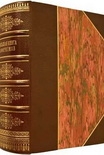Bitterhall, Helen McClory [red queen free ebook TXT] 📗

- Author: Helen McClory
Book online «Bitterhall, Helen McClory [red queen free ebook TXT] 📗». Author Helen McClory
This is a long introduction to me.
When I first met Tom I was drunk and high, and he was sweating in a work shirt clutching a pint of cider. He seemed hale and dubious. Didn’t speak much, but what he said he said close and simple. Seduction by agreement. I led him away from his friends; we snogged by the stairs in the club. I was too old for that kind of thing but the blue and pink neon lighting hid that fact under its own issues. Between the dog and the wolf, the hour of evening howls, we stepped close and pressed bodies. Around about the time Tom became dispossessed of himself I was my worst self, irritable with him, like I might be at a child who was not mine but was foisted on me. But then, in that first moment with thrumming bass and our lips meeting and his hand on my back still holding his cold pint glass there against my spine, I considered myself smitten, though distinctly aware I was so. Tom was wildly handsome. In a domesticated way like a wolf raised by English Labradors. Like something confused but living the life it knows.
You could see the effect of him entering a room, hackles going up on the other lesser dogs, hairs on the backs of necks. A communal desire that stands between wanting to have or harm – dangerous that. He could not be anything else. Not until he met Daniel, and read the book, and let a certain split work through him – the devil’s split – muckily creating a space where his scrawling footnotes could begin.
Tom Decays
That book, that diary, drab red-covered handwritten relic on the kitchen table in the Minto house, contained its own world – not for expanding upon yet. I want to step back a moment here and think of texts, generally. It’s significant, but not unexpected, the role which texts have played in our assumption of madness. Our reading of them – I mean, mine and Daniel’s – the fact I think of ‘reading’ Tom and his decay at all.
We’re both big into our texts. I’m the academic who foregrounds the text within its book – the vessel that survives to pass a book down through the years to us, the text only a passenger (and one of many passengers if we’re talking about a book of any age). Daniel’s the one who for a living replicates books. Who knows a book’s physical specificity is utterly upended in our age. There’s a kind of sadness in that which cries to him to value the uniqueness of a thing at the very same time he is destroying that uniqueness. So he’s tormented and I am practical. I’ve talked to Daniel about the pleasant balance in our tendencies; it’s why we are writing this book together. But in deference to an idea of reality we’re doing it separately so that stories that emerge are individual readings, not conjoined.
There’s a poem I found once that I’ve never managed to remember enough details from to locate again. I had memorised a few lines of it – I had a few lines memorise themselves – while it hovered before me on some site:
I have a kind of appalling tenderness in my head
A bruise from a fall in childhood
I know, stupid. An obvious tablecloth escapade, a literary trick whisking the reader from the expectation of one state (mental tenderness) to another (physical damage). I know poems are famous for doing this. But it’s still funny to me. Give me a break, because of my studies I mostly encounter old and middle English poems on stolid religious themes. There was another bit:
And so I hear them run their nails against the binding of my skull
And so I let them in. And in the letting in
something gush out.
‘Gush’ is one of those words underrated for its awfulness. Gush, like the sound a tongue makes when you’ve been smacked in the face and your mouth is filling up with blood. I can’t remember who or what ‘them’ is. What’s important is they are plural. I’ve been thinking of this unsettling fragment of





Comments (0)